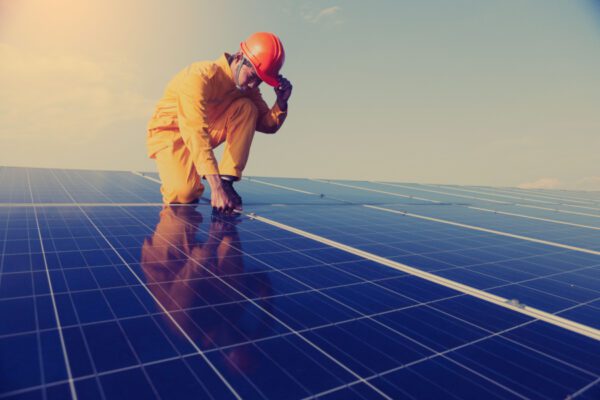As the world continues to embrace renewable energy sources, solar power has emerged as a popular choice due to its eco-friendly nature and cost-saving benefits. However, the installation of solar energy systems can be a significant investment, and stakeholders want to ensure that the projects are completed successfully. Solar surety bonds have gained prominence as a means to provide financial security and ensure project completion. In this article, we will explore the benefits and drawbacks of using solar surety bonds in the context of solar energy projects.
Benefits of Solar Surety Bonds
Financial Protection
One of the primary advantages of solar surety bonds is the financial protection they offer to various stakeholders involved in solar energy projects. Surety bonds function as a form of insurance, guaranteeing that if a contractor fails to complete the project or meet their contractual obligations, the surety company will compensate the project owner. This protection provides peace of mind to investors and encourages them to invest in solar energy projects, knowing that their financial interests are safeguarded.
Project Completion
Solar surety bonds also ensure that solar energy projects are completed within the specified timeframe. In the event of a contractor’s default, the surety company steps in and arranges for the completion of the project by hiring an alternative contractor. This ensures that the project progresses smoothly without delays or disruptions, benefiting both the project owner and the end-users who will ultimately benefit from the solar energy system.
Quality Assurance
Solar surety bonds also promote quality assurance in solar energy projects. Before issuing a bond, surety companies assess the contractor’s financial stability, experience, and track record. This evaluation helps ensure that only qualified and reputable contractors are eligible for bonding. As a result, project owners can have confidence in the contractor’s abilities, expertise, and commitment to deliver a high-quality solar energy system.
Legal Compliance
In many jurisdictions, solar surety bonds are a legal requirement for solar energy projects. By adhering to these regulations, project owners demonstrate their compliance with the law and protect themselves from potential legal issues. Solar surety bonds ensure that contractors fulfill their contractual obligations, such as obtaining necessary permits, adhering to safety regulations, and completing the project according to the specified standards.
Risk Mitigation
Solar energy projects involve various risks, including construction delays, cost overruns, and contractor defaults. Solar surety bonds mitigate these risks by transferring the financial burden from the project owner to the surety company. This risk transfer mechanism provides a safety net for project owners, enabling them to overcome unexpected challenges and ensure project success.
Drawbacks of Solar Surety Bonds
Cost
One of the primary drawbacks of solar surety bonds is the associated cost. Contractors must pay a premium to obtain the bond, typically a percentage of the contract value. This cost can be substantial, particularly for smaller contractors or those with limited financial resources. The expense of acquiring surety bonds may discourage some contractors from pursuing solar energy projects or result in increased project costs passed on to the project owner.
Limited Availability
Solar surety bonds may not be readily available for all contractors. Surety companies evaluate contractors based on their financial stability, experience, and track record. Contractors with a history of defaults or inadequate financial standing may struggle to obtain surety bonds. This limitation can exclude some contractors from participating in solar energy projects, reducing competition and potentially affecting project costs and timelines.
Administrative Burden
Obtaining a solar surety bond involves a significant amount of administrative work. Contractors must provide detailed financial statements, references, and other documentation to the surety company for evaluation. This process can be time-consuming and may require the assistance of professionals such as accountants or attorneys. The administrative burden can result in delays and additional costs for contractors, particularly those who are not familiar with the bonding process. This administrative burden may discourage some contractors from pursuing solar energy projects or create barriers for smaller contractors with limited resources.
Limited Flexibility
Solar surety bonds often come with specific terms and conditions that contractors must adhere to. These conditions may include strict project timelines, quality standards, and reporting requirements. While these conditions are intended to ensure project success and protect the interests of stakeholders, they can limit the contractor’s flexibility in managing the project. Contractors may find it challenging to make adjustments or modifications during the construction process, potentially impacting project efficiency or innovation.
Dependency on Surety Companies
Solar surety bonds rely on the participation of surety companies, which act as guarantors. In the event of contractor default, the surety company is responsible for compensating the project owner and arranging for project completion. However, the financial stability and reliability of surety companies can vary. If a surety company faces financial difficulties or goes out of business, it may affect the ability to honor the bond, leaving project owners without the intended protection. It is crucial for project owners to carefully evaluate the reputation and financial standing of the surety company before obtaining a bond.
How Horton Group help you with your Solar Surety Bonds business
At The Horton Group, we understand the unique challenges faced by businesses in the renewable energy industry, particularly those involved in solar energy projects. One critical aspect of solar project development is securing the necessary financial guarantees to ensure the completion of contractual obligations. This is where our expertise in Surety Bonds can help your Solar Surety Bonds business thrive.
Solar Surety Bonds play a crucial role in providing financial security and peace of mind to project owners, investors, and other stakeholders involved in solar energy ventures. These bonds serve as a guarantee that the solar project will be completed as per the agreed-upon terms and conditions, protecting against potential financial loss resulting from non-performance or default.
Conclusion
Solar surety bonds offer several benefits for stakeholders involved in solar energy projects. They provide financial protection, ensure project completion, promote quality assurance, facilitate legal compliance, and mitigate risks. However, there are also drawbacks associated with solar surety bonds, including the cost, limited availability, administrative burden, limited flexibility, and dependence on surety companies. It is essential for project owners and contractors to weigh these advantages and disadvantages when considering the use of solar surety bonds. Careful evaluation and consideration of alternative risk management strategies are crucial to determine the most suitable approach for each project. Ultimately, the goal should be to strike a balance between financial protection, project success, and efficient project management in the rapidly expanding solar energy industry.
Material posted on this website is for informational purposes only and does not constitute a legal opinion or medical advice. Contact your legal representative or medical professional for information specific to your legal or medical needs.



